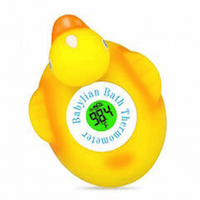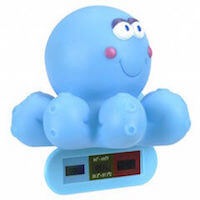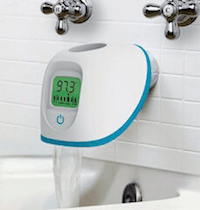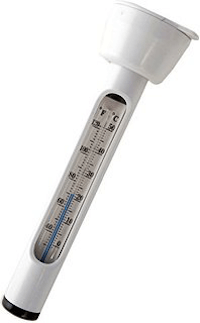Injury to a Child by Bath Water Burns
An Ounce Of Prevention Is Worth A Pound Of Cure
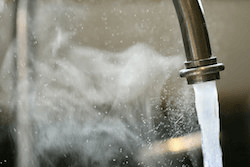 Babies and children are naturally accident-prone: they are uncoordinated, inexperienced and inquisitive. As parents, we try our hardest to protect them from all sorts of potential hazards such as running into hard or sharp objects, falling from tall heights, and putting small objects in their mouths. Another hazard we must protect against is coming into contact with hot and scalding water, which we can prevent by following a few easy steps. Continue reading to learn helpful tips, as well as what could happen when caution is not taken.
Babies and children are naturally accident-prone: they are uncoordinated, inexperienced and inquisitive. As parents, we try our hardest to protect them from all sorts of potential hazards such as running into hard or sharp objects, falling from tall heights, and putting small objects in their mouths. Another hazard we must protect against is coming into contact with hot and scalding water, which we can prevent by following a few easy steps. Continue reading to learn helpful tips, as well as what could happen when caution is not taken.
Babies Are More Sensitive To Heat Than We Are
According to the Burn Foundation, scalding is the number-one cause of burn injury to children under age four, and accounts for 17% of all childhood scald hospitalizations.
Exposure to hot water causes third degree burns…
…in 1 second at 156°
…in 2 seconds at 149°
…in 5 seconds at 140°
…in 15 seconds at 133°
The skin of newborn babies is extremely sensitive to hot and cold temperatures, so it is not advisable to completely immerse them in water as this may severely impact their core body temperature. Healthcare providers actually recommend sponge baths for newborns until the stump of their umbilical cord has fallen off, usually between one and four weeks after birth). Another thing to consider is that newborns aren’t yet crawling and playing in the dirt, so they ‘re only getting dirty from dribbled milk, spit-up, or a little perspiration.
To bathe a newborn, simply remove all their clothes, wrap them in a warm terry cloth towel and place them on a flat surface. Dip a sponge or washcloth in lukewarm water and wipe the baby from head to toe, concentrating on the folds and wrinkles where milk or other substances might accumulate, and rewet and wring out the sponge or towel with fresh water until the bath is complete. During this process, make sure to keep them mostly covered by the towel (including their head) so that they don’t get too cold.
Older babies can be bathed in a large sink or a bathtub insert with a small amount of warm water: no hotter than 100 degrees Fahrenheit. Only fill the sink or tub with a two to three inches of water and then place the baby into the water once you’ve confirmed it’s the right temperature. Never place a baby in a sink or tub while the water is running since the water could become hotter as it comes out of the spout. Also, make sure you have all the necessary supplies close at hand before placing the baby into the water: NEVER leave a baby or small child unattended in the presence of any amount of water: it only takes seconds for an accident to happen.
Tips and Toys To Help Prevent Baby Burns
The Centers for Disease Control and Prevention recommend setting your household water heater thermostat to no higher than 120 degrees Fahrenheit, which will prevent the water throughout your home from getting high enough to irritate or burn baby’s skin (i.e., over 100 degrees Fahrenheit or 39 degrees Centigrade). The tried-and-true method for testing baby’s bath water is to dip your elbow or inside of your wrist into the water BEFORE placing baby into the water. Many companies also make thermometers ranging from strictly functional to cute and interactive for testing the temperature of the water to ensure it’s not too hot or too cold for baby Here are just a few you might consider:
Reckless Actions Can Have Serious Consequences
Forgetting or disregarding any of these cautionary rules while bathing a baby or small child can lead to disastrous consequences. Not only can the baby become injured, sometimes permanently, but you could also find yourself facing serious criminal charges. Failing to test the water temperature of a child’s bath before placing them into the water and causing scalding or burns on the skin could lead to charges such as reckless injury to a child.
Texas Injury to a Child law is found at the Texas Penal Code 22.04. The code states, in part:
Someone commits injury to a child if the person “intentionally, knowingly, recklessly, or with criminal negligence” causes a child:
- serious bodily injury;
- serious mental deficiency, impairment, or injury; or
- bodily injury.
If the State alleges that you recklessly caused bodily injury to a child, you would be facing a State Jail Felony. If the State alleges that the injury to the child caused “serious bodily injury,” then you would face a Second Degree Felony.
Terrible accidents can lead to terrible criminal charges. If you or someone you love is facing charges for injury to a child, please call our firm and schedule a consultation.
